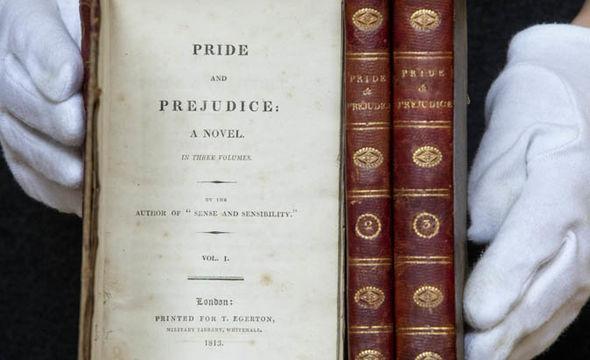A Contrary Wind by Lona Manning

Jane Austen is one of the most popular authors in English literature, and for that reason there have been a huge number of books and stories written that have been based on her work. These have ranged from the excellent to the shockingly bad. Lona Manning’s
A Contrary Wind falls firmly in the excellent category.
A Contrary Wind picks up the story of Mansfield Park at the point which Fanny, her cousins, the Crawfords, and Mr Rushworth and Mr Yates are putting on a performance of
Lovers’ Vows whilst her uncle is away. In Austen’s original
Mansfield Park, Fanny’s uncle, Sir Thomas Bertram, returns before the play can be performed and puts a stop to proceedings. In
A Contrary Wind, Manning imagines what might have happened had Sir Thomas not returned and derailed the party’s plans. As the book continues this sees Fanny take hold of her independence and become a governess – leaving Mansfield Park and the demands of her Aunt Norris behind. Naturally this causes some members of the family to resent her for what is seen as ingratitude after all they feel they have done for her (aside from making her feel like a second class citizen within her own ‘home’), but nevertheless, Fanny forges ahead with her new life.
For those Austen readers who consider Fanny Price to be too insipid and too timid to be a heroine whom they like, the more spirited side of Fanny Price shown in
A Contrary Wind might be just what is needed to make her a character with whom you can empathise and care deeply for.
It’s not only Fanny who we see develop in
A Contrary Wind however. The reader learns even more of Henry and Mary Crawford and sees new levels of vice and deception from them, while Fanny’s relationship with Edmund reaches new depths in the letters which are exchanged between them following Fanny’s departure from Mansfield. On the whole, Manning stays loyal to the original characters and the behaviours a reader of Mansfield Park would expect from them, while taking them on twists and turns that keep the reader interested until the end. Added to this we also meet new characters and explore further the social intricacies of the Gentry; both good and bad.
In
A Contrary Wind, Manning manages to expertly balance the writing style of an Austen novel along with her own voice. At times she includes sections of text from Austen’s
Mansfield Park, and does so in a way which is almost seamless. Certainly there are plenty of nods to Austen’s original writing(s) in
A Contrary Wind which a Jane Austen devotee will recognise and appreciate.
It is not an Austen novel, and it does not claim to be so, but it’s a novel which certainly deserves a place on the bookshelves of a Jane Austen fan.
 Jane Austen is one of the most popular authors in English literature, and for that reason there have been a huge number of books and stories written that have been based on her work. These have ranged from the excellent to the shockingly bad. Lona Manning’s A Contrary Wind falls firmly in the excellent category.
A Contrary Wind picks up the story of Mansfield Park at the point which Fanny, her cousins, the Crawfords, and Mr Rushworth and Mr Yates are putting on a performance of Lovers’ Vows whilst her uncle is away. In Austen’s original Mansfield Park, Fanny’s uncle, Sir Thomas Bertram, returns before the play can be performed and puts a stop to proceedings. In A Contrary Wind, Manning imagines what might have happened had Sir Thomas not returned and derailed the party’s plans. As the book continues this sees Fanny take hold of her independence and become a governess – leaving Mansfield Park and the demands of her Aunt Norris behind. Naturally this causes some members of the family to resent her for what is seen as ingratitude after all they feel they have done for her (aside from making her feel like a second class citizen within her own ‘home’), but nevertheless, Fanny forges ahead with her new life.
For those Austen readers who consider Fanny Price to be too insipid and too timid to be a heroine whom they like, the more spirited side of Fanny Price shown in A Contrary Wind might be just what is needed to make her a character with whom you can empathise and care deeply for.
It’s not only Fanny who we see develop in A Contrary Wind however. The reader learns even more of Henry and Mary Crawford and sees new levels of vice and deception from them, while Fanny’s relationship with Edmund reaches new depths in the letters which are exchanged between them following Fanny’s departure from Mansfield. On the whole, Manning stays loyal to the original characters and the behaviours a reader of Mansfield Park would expect from them, while taking them on twists and turns that keep the reader interested until the end. Added to this we also meet new characters and explore further the social intricacies of the Gentry; both good and bad.
In A Contrary Wind, Manning manages to expertly balance the writing style of an Austen novel along with her own voice. At times she includes sections of text from Austen’s Mansfield Park, and does so in a way which is almost seamless. Certainly there are plenty of nods to Austen’s original writing(s) in A Contrary Wind which a Jane Austen devotee will recognise and appreciate.
It is not an Austen novel, and it does not claim to be so, but it’s a novel which certainly deserves a place on the bookshelves of a Jane Austen fan.
Jane Austen is one of the most popular authors in English literature, and for that reason there have been a huge number of books and stories written that have been based on her work. These have ranged from the excellent to the shockingly bad. Lona Manning’s A Contrary Wind falls firmly in the excellent category.
A Contrary Wind picks up the story of Mansfield Park at the point which Fanny, her cousins, the Crawfords, and Mr Rushworth and Mr Yates are putting on a performance of Lovers’ Vows whilst her uncle is away. In Austen’s original Mansfield Park, Fanny’s uncle, Sir Thomas Bertram, returns before the play can be performed and puts a stop to proceedings. In A Contrary Wind, Manning imagines what might have happened had Sir Thomas not returned and derailed the party’s plans. As the book continues this sees Fanny take hold of her independence and become a governess – leaving Mansfield Park and the demands of her Aunt Norris behind. Naturally this causes some members of the family to resent her for what is seen as ingratitude after all they feel they have done for her (aside from making her feel like a second class citizen within her own ‘home’), but nevertheless, Fanny forges ahead with her new life.
For those Austen readers who consider Fanny Price to be too insipid and too timid to be a heroine whom they like, the more spirited side of Fanny Price shown in A Contrary Wind might be just what is needed to make her a character with whom you can empathise and care deeply for.
It’s not only Fanny who we see develop in A Contrary Wind however. The reader learns even more of Henry and Mary Crawford and sees new levels of vice and deception from them, while Fanny’s relationship with Edmund reaches new depths in the letters which are exchanged between them following Fanny’s departure from Mansfield. On the whole, Manning stays loyal to the original characters and the behaviours a reader of Mansfield Park would expect from them, while taking them on twists and turns that keep the reader interested until the end. Added to this we also meet new characters and explore further the social intricacies of the Gentry; both good and bad.
In A Contrary Wind, Manning manages to expertly balance the writing style of an Austen novel along with her own voice. At times she includes sections of text from Austen’s Mansfield Park, and does so in a way which is almost seamless. Certainly there are plenty of nods to Austen’s original writing(s) in A Contrary Wind which a Jane Austen devotee will recognise and appreciate.
It is not an Austen novel, and it does not claim to be so, but it’s a novel which certainly deserves a place on the bookshelves of a Jane Austen fan.


1 comment
Lovely review for a clever book! I think Lona Manning is a gifted storyteller.
Anonymous
Leave a comment
This site is protected by hCaptcha and the hCaptcha Privacy Policy and Terms of Service apply.